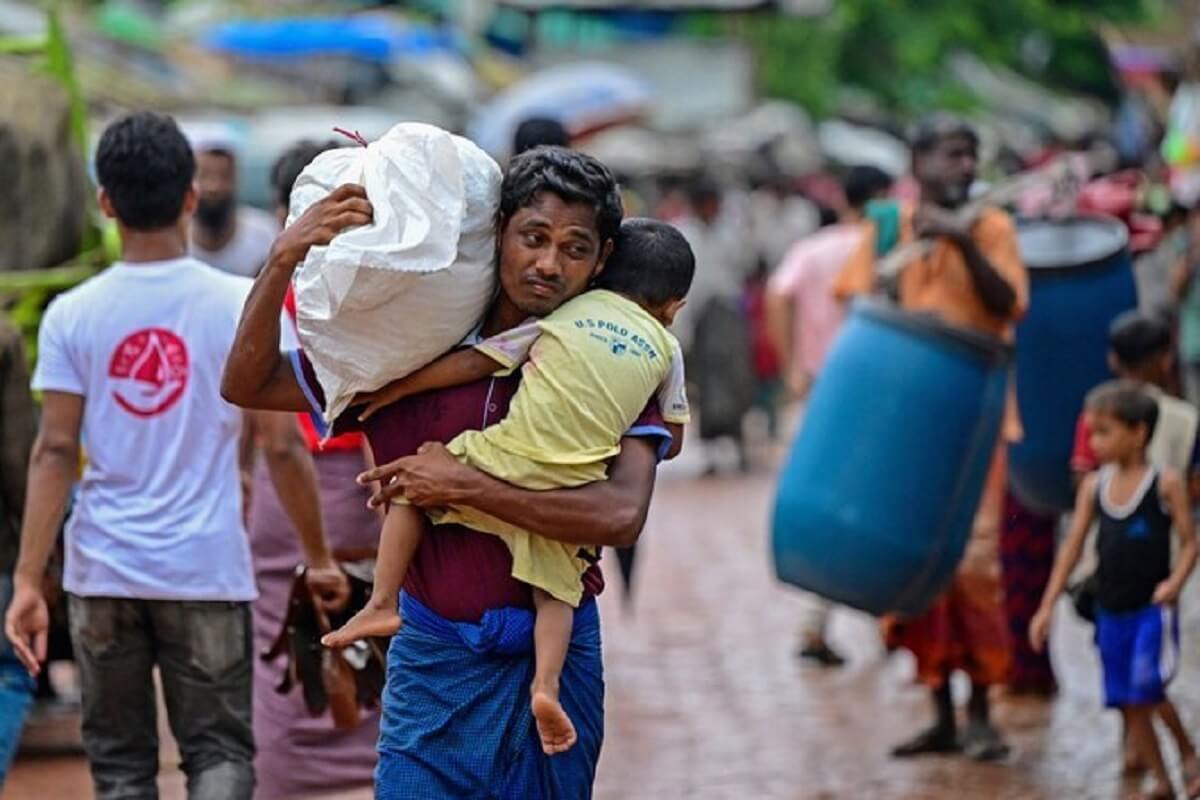UN Secretary-General’s Timely Visit to Rohingya Camps
Dr. Azeem Ibrahim | 10 March 2025
In an announcement that underscores the gravity of the Rohingya crisis, UN Secretary-General Antonio Guterres last week confirmed that he will visit the Rohingya refugee camps in Cox’s Bazar, Bangladesh, later this month. His visit comes at a pivotal moment, as funding cuts from the US Agency for International Development threaten to exacerbate an already dire humanitarian situation. Moreover, as Myanmar undergoes profound shifts in its internal power dynamics, Guterres’ visit is an opportunity to reinforce the necessity of including the Rohingya in any future political settlement.
The Rohingya refugees in Bangladesh are among the most vulnerable populations in the world. Since 2017, more than 1 million Rohingya have fled systematic persecution in Myanmar, seeking refuge in the sprawling and overcrowded camps of Cox’s Bazar. These camps are almost entirely dependent on international aid to meet basic needs such as food, healthcare and education.
However, with USAID and other Western donors reducing their contributions, the Rohingya are facing an acute funding shortfall. The US government in January implemented a 90-day freeze on foreign aid, including humanitarian assistance to crisis regions. This has had an immediate and severe impact on the Rohingya, forcing aid agencies to scale back vital services. Food rations have already been reduced and, without urgent intervention, malnutrition rates will soar. Healthcare services, already stretched thin, may soon become inaccessible to thousands.
Guterres must rally global attention to the funding crisis and push donor nations to step up their commitments.
Bangladesh, which has commendably shouldered the burden of hosting the Rohingya, is in no position to compensate for these funding gaps. The country is grappling with its own economic challenges and its government has repeatedly stressed that it cannot indefinitely sustain the cost of sheltering the Rohingya refugees without robust international support. This is why Guterres’ visit from March 13-16 is so critical: He must rally global attention to the funding crisis and push donor nations to step up their commitments.
At the same time, the situation inside Myanmar is evolving in ways that could have significant implications for the Rohingya. The Arakan Army, an insurgent group that has long fought for autonomy in Rakhine State, has made significant territorial gains. Today, it controls large parts of Rakhine, challenging the authority of Myanmar’s ruling junta. This shift presents both risks and opportunities for the Rohingya.
The risk is that a new power structure in Rakhine could continue to exclude and marginalize the Rohingya, maintaining the status quo of discrimination and statelessness. The opportunity, however, lies in the possibility of signaling to the Arakan Army and other emerging power brokers that the Rohingya must have a place in any postmilitary political settlement. The UN has a crucial role to play in advocating for their inclusion and ensuring that their rights are enshrined in Myanmar’s future governance structures.
Guterres’ visit should not merely be an assessment mission; it must be an advocacy effort. He must use his platform to make it clear that the UN will not lend legitimacy to any new political arrangement in Myanmar that does not include the Rohingya and other ethnic minorities. The international community must send a strong message: Any government that seeks international recognition must commit to protecting the rights of all its people, including the Rohingya.
For too long, the Rohingya have been treated as an inconvenient problem — exploited, displaced and ignored when politically expedient. Guterres has the chance to change that narrative. His visit must serve as a rallying call for world leaders to address both the immediate humanitarian crisis and the long-term political solution necessary to prevent further cycles of violence and displacement.
This visit follows a meeting in New York last month between Guterres and the special envoy of the Bangladeshi prime minister for the Rohingya issue. This diplomatic engagement signals that Bangladesh is actively seeking greater UN involvement and advocacy on this issue. The Bangladeshi government has consistently called for a durable solution — one that involves repatriation but ensures safety, citizenship rights and dignity for the Rohingya.
Guterres must leverage this momentum to push for concrete action. He must work to ensure that donor nations reinstate and increase their humanitarian contributions. He must also engage with regional powers — particularly China and India, both of which wield significant influence over Myanmar — to push for a more inclusive political solution.
The secretary-general’s visit to Bangladesh and the Rohingya camps comes at a critical time. Without urgent international intervention, the humanitarian situation in Cox’s Bazar will deteriorate further, pushing one of the world’s most vulnerable populations into even deeper suffering. At the same time, Myanmar’s shifting political landscape presents an opportunity to advocate for a new governance structure that includes the Rohingya and other marginalized groups.
Guterres must ensure that the world does not turn its back on the Rohingya. His visit must be more than symbolic — it must be a catalyst for action, securing both immediate aid and a long-term commitment to justice and inclusion for the Rohingya people.
Dr. Azeem Ibrahim is the director of special initiatives at the Newlines Institute for Strategy and Policy in Washington, DC.
This article was originally published on Arab News.
Views in this article are author’s own and do not necessarily reflect CGS policy.
